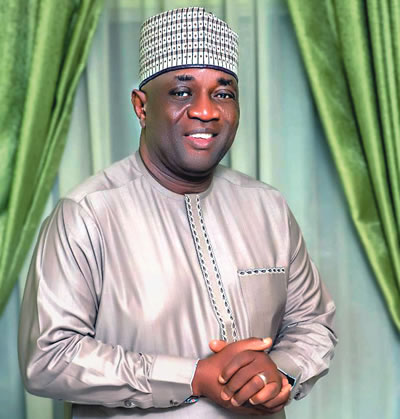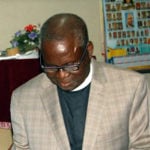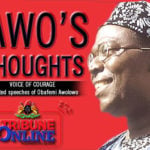A former Works Commissioner in Oyo State, Dr Yunus Akintunde, clocked 60 last week. In this interview, he relieves his experience on the political turf, his senatorial aspiration, the electricity situation in the country, among others.
You possibly have been in politics for about 30 or even 40 years. At 60, would you say you are fulfilled as a major player in the politics of Oyo State?
I give thanks to god who has made it possible for me even to be alive today, but looking back as a politician, I will say on personal note I can say I have fulfilled my dream. What is my primary dream? It is making neighbours happy. I have been able to provide for the needy in the very little way I can and I have been useful to my community, both the immediate and the extended one.
But on a general note, I have a lot of regrets at 60 years. I have a serious regret that as of today, the political class cannot make the country what it ought to be. I have regret as a Nigerian living in a country where the citizens can’t afford to eat three times a day. We have a lot of drop outs and out-of-school children. One will regret being in a country where the majority don’t have access of qualitative healthcare and medical services. I have regret that the basic energy needs of the citizens are not available. Invariably, one will regret being a country where the vast majority of citizens are living below the acceptable standard of life.
In the next 20 years and with the crop of politicians we have now, do you foresee any positive change?
I’m afraid that the crop of politicians we currently have may be better than the ones coming behind them. When we were young, we never heard of any cyber crimes being committed by young people in their 30’s and even 20’s. Youths have taken to crimes such as robbery and ritual killing as well as other vices. And as it is in social life, so it is in the political life. You will see young guys who should further their education already aspiring to be councilors. It is so bad now that people believe the only means of survival is politics. So, I’m afraid about what the future holds for the country.
The crisis in your party in APC Oyo State reached a crescendo in 2018 during the second term of the late governor, Abiola Ajimobi. Up till now, it does not look as if there is a level of peace in the party that one can describe as good. Do you think if Ajimobi had been alive, APC would have been a more united party in the state today?
Well, I can’t predict because Ajimobi is not alive and we would not know. But I believe there has never been an incident where the real cause will be a single factor. It is always a combination of factors. So, if one factor is no more, we might not be too correct to say if that factor still exists, the situation might have changed. I think there are a lot of variables that need to be considered. But the bottom line is like an ordinary Physics law: where there is movement, there will be friction too. Once a party is popular, there is bound to be crisis there. So, we will continue to manage the crisis which is why we have crisis management. If there is any party whether there is no crisis, then that party can’t win an ordinary councillorship election.
Are you saying the absence of a central leader is responsible for what is happening in the party today?
There is what we call culture and there is law. Where tradition or culture and law are in conflict, the law prevails. As far as the APC constitution is concerned, there is nothing like a central leadership. The constitution recognises only the executives. But by our culture and tradition, people give respect to elders. The truth remains that if Ajimobi were alive today, the situation might not degenerate to this level. But in a normal Physics law, water finds its level. The current situation will arrange itself.
When you express regrets about Nigeria, what exactly do you consider the problem? Is it the system or the structure that is the problem, which informed the clamour for restructuring or the form of government or is it the players?
I think it is about our orientation. If you are saying we should decentralize the government and we have local government chairmen who don’t even know what they are doing, wasting resources on things that are not relevant. What that means is that the wastage you are trying to correct through decentralisation will be repeated at the bottom level of government.
I am sorry to say this and I could be too conservative. Personally, there are things I don’t believe in. How on earth will someone say he is a civil servant and he comes to church of a mosque and donates N1m? We should know that such a person is a thief. It is very simple. They made you a Baba Adinin and you donated N1m. The tradition here is that people will hail such a person. We all saw a policeman that they call ‘too much money’ and we all saw the cars he rides in and nobody talks. People will just be condemning politicians. These are public workers. There are a lot of things we need to change and they have to do with our thinking. I am not saying that I am a saint, but I don’t respect people who are so rich and I know they did work for the money. I will never respect such people.
So, whether we restructure or we don’t restructure, it will not change the situation of Nigerians. Go and read BUDGIT report and you will see that some people are not supposed to be on Nigerian roads again. How can a Senator allocate money for borehole in rural communities and at the end of the day, they money was collected and the job was never done?
I believe the problem is not about the constitution or the structure, but about the orientation of the individual. What do we respect in life as individuals? I still want to say clearly that it is not about Africans. As of today, Egypt has almost 95 per cent electricity supply and the same thing for Tunisian and almost all North African countries. Why can’t electricity work in Nigeria? It will never work here because the orientation is so poor.
You launched a book entitled Dimensions of Energy Poverty and the Challenges of Rural Electrification. Give us an idea of what you are saying in the book?
When you talk of energy poverty, you look at the variables. Is energy available? If it is available, is it accessible? If yes, is it affordable, reliable and sustainable? You put those five conditions together to analyse whether there is energy poverty or not. You must have seen people who were doing immunization and they carry cooler in which they put the vaccine. If you want to do immunization at Ido Local Government Area and you put iced blocks in a cooler, will the cooler give the vaccine the prescribed temperature? You need to convince me that the temperature of that cooler is the prescribed temperature of the vaccine. Are we saying we can’t power all our primary healthcare centres with solar energy? Is it not to refrigerate vaccines, give light to treat patients, fan for ventilation and to charge phones and sterilise medical wares? If a boy who is schooling has to rely on candle which can burn the whole house to read his books at night, it is energy poverty.
How do you think government can address the challenges of energy poverty?
One, the policy and the planning have to be looked into. There is no local government in Nigeria where there is not a person who has elementary knowledge of electrical engineering or physics. We don’t have to recruit. Let someone be the rural electrification coordinator. The policy of someone sitting down in Abuja and awarding rural electrification project in Fashola does not even come up. We should make it mandatory that every project must be attached to the NGOs in the council areas. Again, there are too many people who know next to nothing about rural electrification but are just mere contractors. You said earlier that solar panel will not work after two years, but I think it is about maintenance. If you install solar in your house, before it clocks two years, you will have something to repain there. And Nigeria is naturally dirty. If you put on a white shirt today, you can’t wear it tomorrow. You have travelled out of the country, you know you can wear a white shirt for days abroad. It is about the environment. The same thing happens to the panel. Once the panel is dusty, it needs to be maintained, but what do governments do here? They will order the removal of the dusty ones and award a new contract to make money. Most people look for money that they don’t really need.
Would you say the Federal Government did not get it right by privatising the DISCOs and the GENCOs?
I think they almost got it right. You know the TCN still belongs to government. Some people generate and rely on other people to distribute what is generated. What are we saying? Even when people were talking about food scarcity, why won’t there be food scarcity? Can the farmers preserve their farm produce? If you plant cashew now, one Chinese will just come and you will just have to sell it. If you plant cassava and you harvest it, you dare not allow it to be on the ground for 72 hours. And what the Chinese will do is that they won’t approach you the first day after you have harvested it. They will come on the third day so that they can gain a lot from distress sale. But if there is a means by which you can preserve your products, then it means you will sell to them at a reasonable price. This issue of energy is multidimensional.
In spite of your regrets, you still want to remain a politician. You are contesting as a senatorial aspirant. It is on records that you have influenced a lot of projects to Oyo communities from non-elective position.
Yes, I have facilitated streetlights to a number of places, more than 500 posts of streetlight across the state. It is a Federal Government project. I have facilitated the construction and renovation of blocks of classrooms in about 11 schools with boreholes and toilets provided and so on. This is part of what is prompting me to go to the Senate. If I can do all these using my name as a credible brand to achieve it, imagine the scale of what I will be able to do if I have political power in an elective position. Allah is my witness. I have never heard economic consideration for political offices. What do I want? How much will I spend to eat? You can work and earn your salary and there will be dignity in it. If anybody knocks on my door, I will give what I have. I have the vision of serving so I will be able to do more for the people.
YOU SHOULD NOT MISS THESE HEADLINES FROM NIGERIAN TRIBUNE
We Have Not Had Water Supply In Months ― Abeokuta Residents
In spite of the huge investment in the water sector by the government and international organisations, water scarcity has grown to become a perennial nightmare for residents of Abeokuta, the Ogun State capital. This report x-rays the lives and experiences of residents in getting clean, potable and affordable water amidst the surge of COVID-19 cases in the state…Gowon tasks FG Gowon tasks FG
Selfies, video calls and Chinese documentaries: The things you’ll meet onboard Lagos-Ibadan train
The Lagos-Ibadan railway was inaugurated recently for a full paid operation by the Nigerian Railway Corporation after about a year of free test-run. Our reporter joined the train to and fro Lagos from Ibadan and tells his experience in this report…Gowon tasks FG Gowon tasks FG






